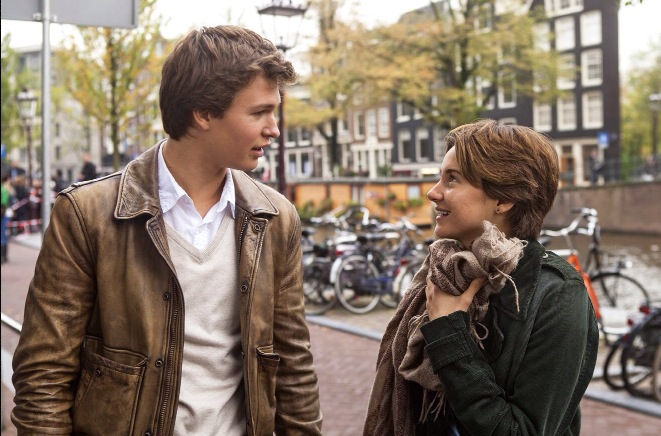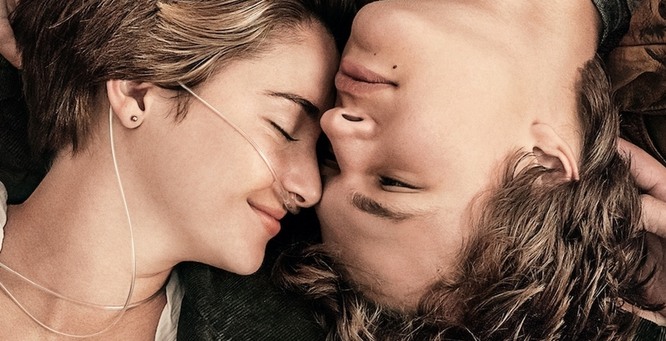Just right.
I like to think that I’ve long since settled my position on the whole ‘books are better than movies’ debate. Maybe in some cases I prefer the book and in others the film, but I try to never base my judgment of a film on how it might compare to the original novel. The key word here of course, is try. But with something like The Fault in Our Stars this becomes particularly difficult. The book and its author are something of a phenomenon It is a book I love, and one that moved me deeply. I could only hope that Josh Boone’s adaptation would live up to the high standards that all the fans expected. I decided a marker of its success would be whether or not it could make me cry. The result – I’ll admit that I have cried more in films before, but I’ve also cried a lot less. The Fault in Our Stars was just right.
Hazel Grace Lancaster (Shailene Woodley) is seventeen and terminally ill. She goes to a cancer support group to make her parents happy. One day, young and handsome cancer survivor Augustus Waters (Ansel Elgort) appears in the support group. She intrigues him and the two are instantly drawn to each other. As the films tagline proclaims, so begins ‘one sick love story’ in which the romance wraps around, but never overpowers, the fare more important, heart-breaking account of living of a life in which you know your days are limited.
Shailene Woodley, whom I once had the audacity to say was only an ‘okay’ actress, was possibly the perfect choice for the intelligent, sometimes sardonic Hazel. I take back anything even slightly bad I ever said about her acting abilities. She proved herself more than capable, with a strong, honest performance. It has been a while since an actor has so emotionally affected me in a film. Ansel Elgort was a wonderful counterpoint, and even though I felt Woodley was the stronger of the two, he had moments of utter brilliance, especially towards the conclusion. Lauren Dern and Sam Trammell were both very good as Hazel’s parents, but the surprise delight was Willem Dafoe, who appears as Hazel and Gus’ favourite, albeit cantankerous author (cantankerous being more than a slight understatement).
Some of the dialogue is perhaps better suited for the written word rather than the spoken (there are certain things it is hard for anyone to say without sound a bit ridiculous), but there is no real detriment to the script being lifted almost straight from the pages of the book. There is such sincerity to this film, in the direction and the performances, that it barely feels corny or silly in the slightest. Josh Boone handles the material with a level of respect that must have been hard to find. Most importantly, I was able to laugh just as much as I cried – who wants to see only darkness, and no light?
Cancer is a difficult subject for any film or book. It affects the lives of so many people and everyone has a personal story (myself included). The parts of The Fault in Our Stars that felt so raw and powerful, the scenes that made me cry, were the scenes that showed Hazel, Gus, their families and friends dealing with the realities of cancer. I wasn’t crying at the romance going on – I was crying with the characters as they felt pain and grief, and laughing with them in their moments of happiness. It’s a difficult thing to accomplish, but The Fault in Our Stars feels admirably truthful. Boone’s quirky visual style and the offbeat soundtrack give this film the edge it needs to make it feel like such a unique, yet such a universal story all at once. Excuse me while I go fall in love with this story all over again.
8/10
For more Reviews, click here. If you’re digging ReelGood, sign up to our mailing list for exclusive content, early reviews and chances to win big!

